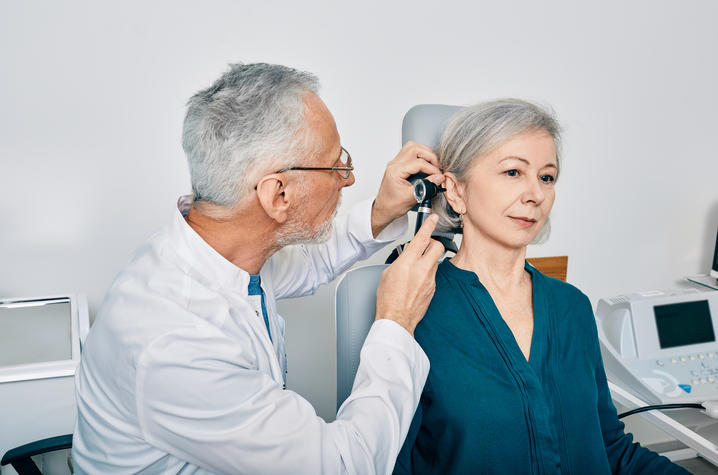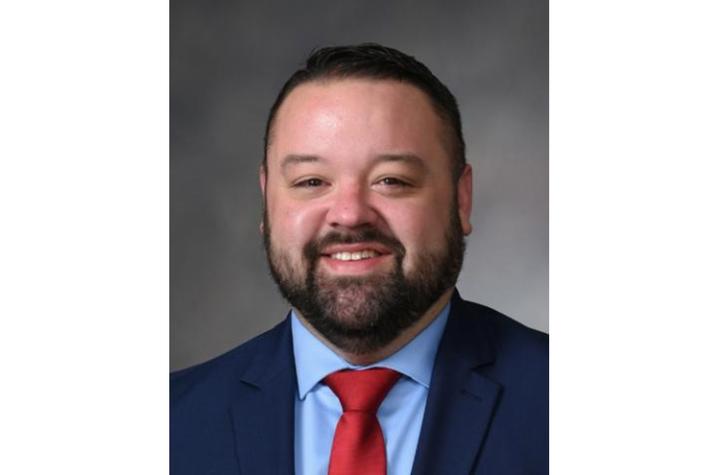Is it time to see an audiologist? Know the signs
The University of Kentucky Public Relations and Strategic Communications Office provides a weekly health column available for use and reprint by news media. This week’s column is by Trey Cline, Au.D., Ph.D., clinical audiologist with UK HealthCare Ear, Nose & Throat and the UK College of Medicine Department of Otolaryngology – Head and Neck Surgery.
LEXINGTON, Ky. (June 18, 2025) — When you think about getting your health checked, you probably think of visiting a primary care doctor or dentist. But have you ever thought about your hearing? If you’ve noticed changes in how you hear or experience things like ringing in your ears or dizziness, it may be time to visit an audiologist.
What is an audiologist?
An audiologist is a licensed health care professional who specializes in evaluating, diagnosing and managing hearing and balance disorders. Audiologists work with patients of all ages, from newborns to older adults, and they play an essential role in helping people stay connected to their world through better hearing and communication.
Audiologists can:
- Complete comprehensive hearing tests to assess the type and degree of hearing loss.
- Recommend appropriate intervention options such as hearing aids, cochlear implants and/or assistive listening devices; fit and manage these interventions.
- Complete advanced testing to assess and manage balance disorders related to the inner ear.
- Diagnose and manage tinnitus (ringing or buzzing in the ears).
- Offer counseling and education for patients and families.
- Provide hearing protection and preventative care for those at risk of noise-induced hearing loss.
How do I know if I need to see an audiologist?
Hearing loss is often gradual and many people may not notice the signs right away. Here are some common symptoms that may indicate it is time to schedule an evaluation with an audiologist:
- You frequently ask people to repeat themselves.
- Conversations are hard to follow, especially in noisy environments.
- You think others are mumbling or speaking too softly.
- You need to turn up the volume on the TV or radio.
- You hear a ringing or buzzing sound (tinnitus) that nobody else hears.
- You feel off balance or dizzy, especially when standing or walking.
- You avoid social situations because it’s hard to hear or keep up.
Even children can benefit from audiologic care. If your child isn’t meeting speech and language milestones, doesn’t respond to their name or has frequent ear infections, an audiologist can help determine if hearing is part of the issue.
Why hearing health matters
Hearing is critical to communication, relationships, learning and safety. Untreated hearing loss has been linked to social isolation, depression and even cognitive decline in older adults. The good news is that early intervention can improve quality of life and overall well-being.
What to expect at an audiology appointment
A typical visit with an audiologist includes a detailed conversation about your hearing history, symptoms and lifestyle needs. You’ll undergo a comprehensive audiologic evaluation (hearing test) in a sound-treated booth to determine your hearing sensitivity. Based on the results, the audiologist will discuss management options — whether that’s hearing aids, a cochlear implant evaluation, medical referral, communication strategies or simple hearing protection tips.
Take the first step
If you suspect you’re experiencing hearing or balance issues or simply want to take a proactive approach to your health, an audiologist can provide the answers and support you need. Just like eye exams and dental visits, hearing check-ups should be part of your routine health care, especially as individuals age or have been regularly exposed to loud environments
UK HealthCare is the hospitals and clinics of the University of Kentucky. But it is so much more. It is more than 10,000 dedicated health care professionals committed to providing advanced subspecialty care for the most critically injured and ill patients from the Commonwealth and beyond. It also is the home of the state’s only National Cancer Institute (NCI)-designated Comprehensive Cancer Center, a Level IV Neonatal Intensive Care Unit that cares for the tiniest and sickest newborns and the region’s only Level 1 trauma center.
As an academic research institution, we are continuously pursuing the next generation of cures, treatments, protocols and policies. Our discoveries have the potential to change what’s medically possible within our lifetimes. Our educators and thought leaders are transforming the health care landscape as our six health professions colleges teach the next generation of doctors, nurses, pharmacists and other health care professionals, spreading the highest standards of care. UK HealthCare is the power of advanced medicine committed to creating a healthier Kentucky, now and for generations to come.






